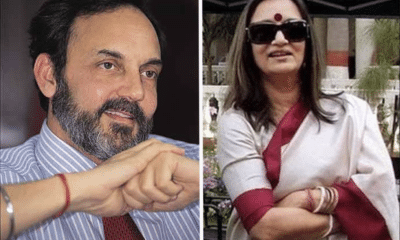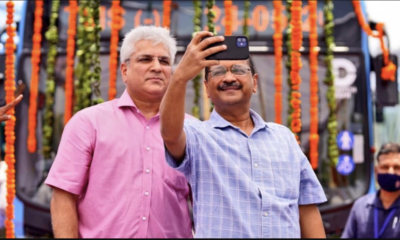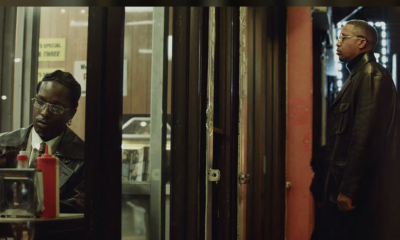News
Supreme Court Presses CBI and ED on Lengthy Delhi Excise Policy Case
Delhi Liquor Excise Policy Case – “Realistically, tell us, where do you see the end of the tunnel?” Justice B R Gavai asked Additional Solicitor General (ASG) S V Raju, reflecting the Court’s urgency for a foreseeable conclusion.
The Supreme Court of India, in a pivotal hearing, questioned the Central Bureau of Investigation (CBI) and the Enforcement Directorate (ED) regarding the prolonged investigation and trial processes in the high-profile Delhi excise policy case, also referred to as the Delhi Liquor Policy. The Court’s inquiry centred on the extensive list of 493 witnesses, raising concerns about the timeline for concluding the trial and the overall implications for justice and accountability.
A Deep Dive into the Legal Maze
The Supreme Court’s interrogation of the investigative agencies stemmed from the case’s complex nature, involving former Delhi Deputy Chief Minister Manish Sisodia and several other accused. With a staggering 493 witnesses listed, the Court highlighted the practical challenges of such an extensive trial. “Realistically, tell us, where do you see the end of the tunnel?” Justice B R Gavai asked Additional Solicitor General (ASG) S V Raju, reflecting the Court’s urgency for a foreseeable conclusion.
Also read: High Court Dismisses Kejriwal’s Bail Plea in Excise Policy Case, Orders CM to Seek Relief from Trial Court
ASG S V Raju attempted to provide clarity, stating that there are eight key witnesses for each of the CBI and ED cases. He assured the bench that these witnesses could be examined within a month of framing the charges. However, he also noted concerns about some witnesses being threatened by other co-accused.
The Stalemate Over Bail
The Court’s scrutiny also extended to Manish Sisodia’s bail pleas, which have been pending due to the prosecution’s resistance. Sisodia, arrested by the CBI on February 26, 2023, and subsequently by the ED on March 9, 2023, has remained in custody for over a year, awaiting the start of his trial. His counsel, Senior Advocate Abhishek Singhvi, argued that the delays were primarily due to the prosecution’s strategies rather than any obstruction from the defence.
The Supreme Court noted that the trial had been stalled by multiple requests for additional documents from the defence, none of which had been deemed frivolous by the lower courts. This observation casts a spotlight on the procedural dynamics that often prolong high-stakes legal battles.
Witness Tampering and Legal Strategy
One of the critical issues brought up during the hearing was the alleged tampering of witnesses, a common allegation in bail matters. The Supreme Court acknowledged this concern but noted that it had not been previously raised at lower court levels. This discrepancy suggested that the prosecution might be using it as a strategic argument to counter Sisodia’s bail application.
Broader Implications for the Judicial System
The Supreme Court’s involvement in questioning the investigative agencies underscores a significant aspect of the Indian judicial system: the need for efficiency and timely justice. Long-drawn cases, particularly those with political undertones, not only strain the legal infrastructure but also impact public trust in the judiciary’s ability to deliver timely justice.
Justice K V Viswanathan’s query, “When can the trial commence?” epitomizes the Court’s push for a more efficient judicial process. The bench’s probing questions reveal a broader judicial frustration with procedural delays, which often result in prolonged incarcerations without trial, undermining the principle of ‘justice delayed is justice denied.’
The Supreme Court’s grilling of the CBI and ED in the Delhi excise policy case serves as a crucial reminder of the judiciary’s role in ensuring timely justice. With nearly 500 witnesses and a complex web of legal and procedural intricacies, the case epitomizes the challenges of high-profile corruption trials in India. As the Court reserved its decision on Sisodia’s bail plea, the broader question of how to streamline such extensive trials remains a pressing concern for India’s judicial system.








































Pingback: Supreme Court Grants Bail to Manish Sisodia, Highlights Judicial Rights